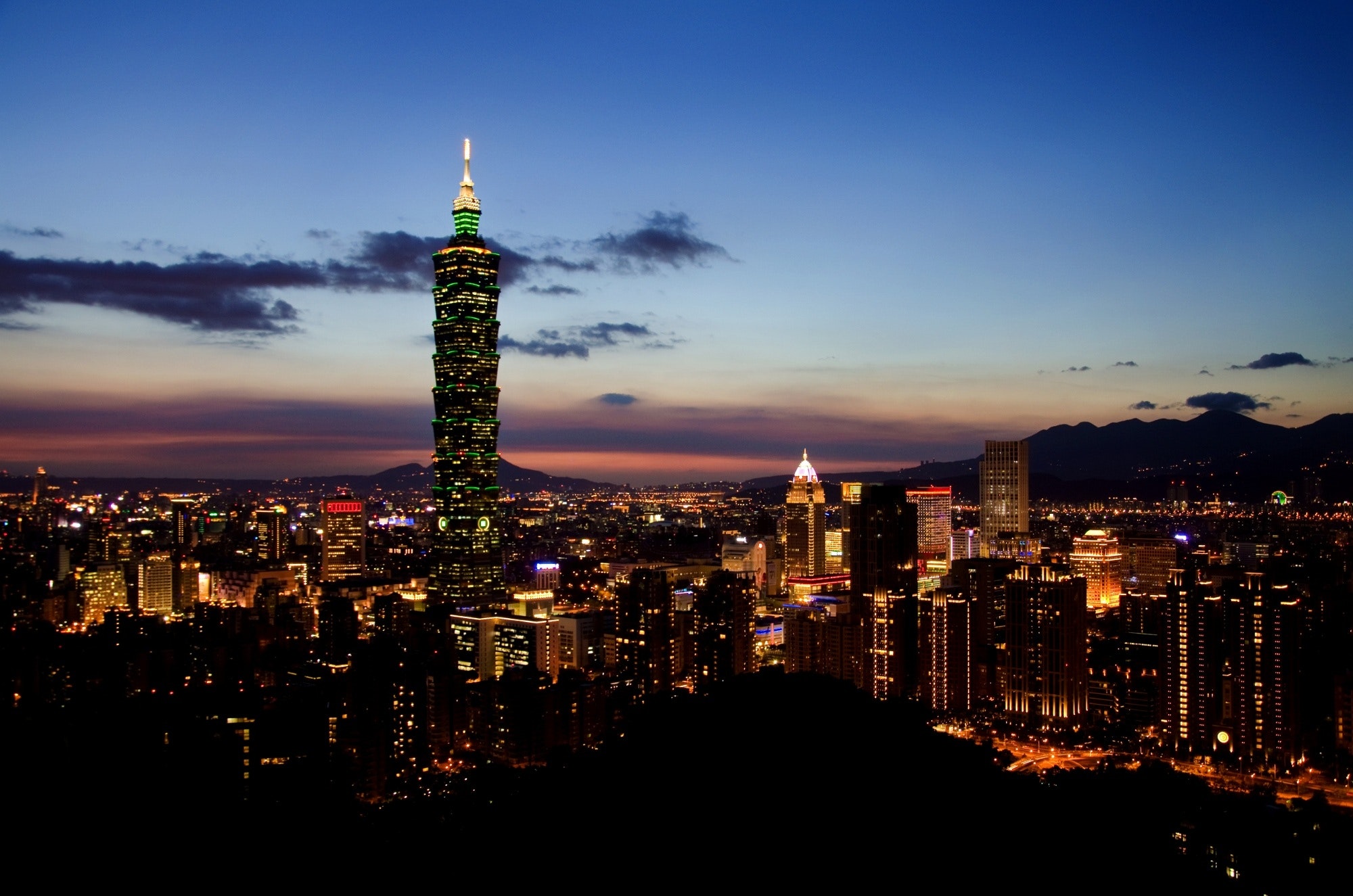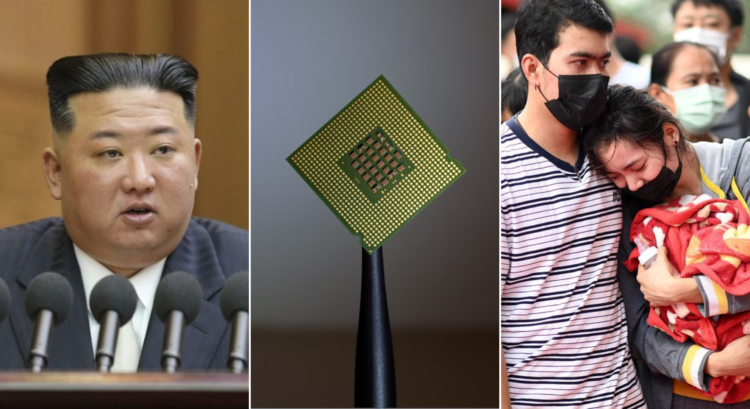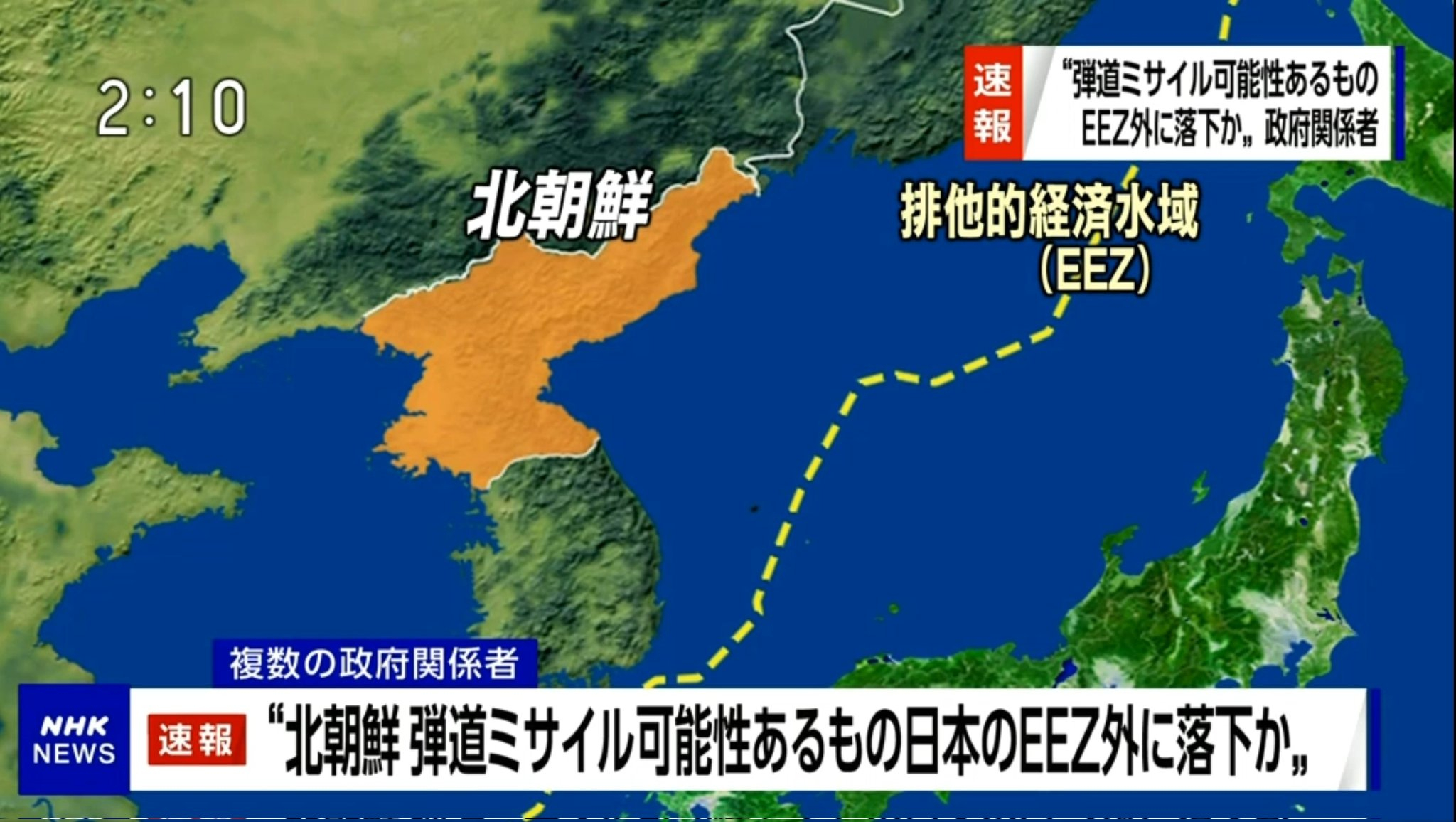“The effectiveness and practical combat capability of our nuclear combat force were fully demonstrated as it stands completely ready to hit and destroy targets at any time from any location,” KCNA said.
It then proceeded to quote its leader Kim Jong Un on his views on peace talks: “Even though the enemy continues to talk about dialogue and negotiations, we do not have anything to talk about nor do we feel the need to do so.”
It is sending a clear message about North Korea’s true intention in conducting its ballistic missile testing in the past two weeks.
Chip Industry In Crisis Amid US-China Tension
As technology progresses, chips have become an essential commodity as they are part of almost everything from smartphones to home appliances to automobiles and even fighter jets. But with the lingering tension between China and the US, the chip industry has found itself in the crossfire due to broad Washington restrictions on selling chips and chip manufacturing equipment to Beijing.
According to news reports, these regulations have significantly impacted chip stocks, rethinking possible contingency plans to curb an impending supply crisis. In addition, officials also imposed new restrictions on selling a wide range of chips for use in “supercomputer” systems in China, which can be used to develop nuclear weapons and other military technologies. With this, two well-known American tech giants Nvidia and Advanced Micro Devices (AMD), said they had been ordered to stop exporting their top-tier chips to Beijing last month.

The repercussions, however, are felt most overtly by Taiwan Semiconductor Manufacturing Co. (TSM), which is especially caught in the crossfire of tension. TSM is one of the largest semiconductor chip manufacturers, accounting for 90 percent of global advanced chip production. According to Zippia, it also controls more than half of the world’s semiconductor foundry market in terms of revenue. As a result, having or developing a backup plan is strongly advised for the Taipei-based company and international tech manufacturers who rely heavily on Taiwan-made chips, especially after the visit of US House Speaker Nancy Pelosi.
Most of the tech companies interviewed by Reuters had either revised or planned to reevaluate “their crisis contingency or continuity of operations plans in Taiwan,” with some executives admitting that emulating the efficiency of Taipei’s booming semiconductor industry would be challenging and the option to move base somewhere in the West would be costly.
While this may necessitate immediate action, given the importance of chip production, business remains business for other Taiwanese chipmakers—with some saying that despite worrying about the looming crisis, fretting will only do no good. Taiwan President Tsai Ing-wen vowed that it would maintain the country’s dominant chip-making position amid the concern.
On Sunday, business tycoon Elon Musk faced backlash after suggesting to resolve the conflict between China and Taiwan by the latter handing control to Beijing.
The owner of the electronic car company Tesla, where large factory operates in China, told correspondents in the Financial Times Friday about his recommendation, saying it “would be to figure out a special administrative zone for Taiwan that is reasonably palatable, probably won’t make everyone happy.”
Hsiao Bi-khim, Taiwan’s de facto ambassador to Washington, responded to Musk’s remarks, saying: “Taiwan sells many products, but our freedom and democracy are not for sale.”
“Any lasting proposal for our future must be determined peacefully, free from coercion, and respectful of the democratic wishes of the people of Taiwan,” he added.
Taiwan sells many products, but our freedom and democracy are not for sale. Any lasting proposal for our future must be determined peacefully, free from coercion, and respectful of the democratic wishes of the people of Taiwan.
— Bi-khim Hsiao 蕭美琴 (@bikhim) October 8, 2022
Meanwhile, Beijing lauded Musk for his suggestion, thanking the billionaire via Twitter “for his call for peace across the Taiwan Strait.”
“Actually, Peaceful reunification and One Country, Two Systems are our basic principles for resolving the Taiwan question … and the best approach to realizing national reunification,” said Qin Gang, China’s ambassador to the United States.
“Provided that China’s sovereignty, security and development interests are guaranteed, after reunification Taiwan will enjoy a high degree of autonomy as a special administrative region, and a vast space for development,” the ambassador added.
Thailand Mass Shooting Update
After losing his job and his financial and marital troubles, a former Thai policeman went on a killing spree. His target? A Thai daycare center.
Panya Khamrap, 34, was reportedly terminated as a corporal after being arrested for using two types of methamphetamine, ending his career in the Royal Thai Police. Moreover, some of his former colleagues have attested to the suspect’s ill temper.
Devastating images this morning from the scene of Thailand's nursery school massacre where relatives and loved ones have gathered.
Photos by @AFP's @MananVatsyayana pic.twitter.com/znikXxMJe9
— Jerome Taylor (@JeromeTaylor) October 7, 2022
A local police chief told reporters that Khamrap had a foul argument with his wife on the day of the rampage that frequently led to violent tendencies. He then attended court hearings for his drug charges before heading to the nursery school to look for his son, who was not present that day.
According to news reports, ex-police entered the daycare center in northeast Thailand on October 6 “armed with a handgun and a large curved knife” and went on a two-hour rampage. He mercilessly slashed 22 children between the ages of 2 and 5 amid an afternoon nap session while he shot down bystanders along the way. Khamrap also hit people in his vehicle when he drove back to his home about 1.9 miles away from the nursery school, where he would kill his last two victims (his wife and child). Finally, the former police would end the horrendous massacre by taking his own life using his 9mm handgun.
Khamrap took 38 lives in total, including 24 children, in one of the world’s most heinous single-person massacres. One witness told journalists to have seen the suspect calmly walking out of the school after his killing spree, like “he was just taking a normal stroll.”

Meanwhile, on Sunday, a three-year-old child was reported to have survived the massacre thanks to her blanket.
Nicknamed Ammy, the child, who is usually a light sleeper according to her parents, was fast asleep under her blanket in the corner of the classroom when the horror happened. She was the sole survivor of the incident who was unscathed, while two others remained in the hospital with serious head wounds. Unfortunately, eleven of their classmates succumb to the senseless killings of the former police.
Andy Vermaut shares:'Miracle' Toddler Survived Thailand Nursery Massacre Asleep Under Blanket: A three-year-old child who managed to survive last week's massacre at a nursery in northeast Thailand slumbered through the horror under a blanket… https://t.co/xDgUvUv9Ff Thank you. pic.twitter.com/zg5K41Mq8A
— Andy Vermaut (@AndyVermaut) October 9, 2022
After Khamrap had left, someone discovered Ammy stirring in a distant corner and carried her out, covering her head with the same blanket that had saved the child from seeing the lifeless bodies of her classmates.
Thailand King Maha Vajiralongkorn visited the survivors at a hospital and comforted the bereaved families in a rare public address following the incident.
“I come here to give you support. I am extremely sad for what has happened. I share your sorrow, your grief,” the Thai King said in video footage published online on Saturday. “There are no words that can express the sorrow. I support you all and wish you to be strong, so the spirits of the children can be at ease.”
Thai King Maha Vajiralongkorn and Queen Suthida visited those injured in the Thailand day care attack and their relatives in northeastern Nong Bua Lamphu and neighboring Udon Thani provinces, October 7, 2022.
(Reuters) https://t.co/v2KPAqYwW5 pic.twitter.com/wop9Vf3HTZ
— Voice of America (@VOANews) October 8, 2022
Hundreds of people worldwide posted condolences across social media, including Pope Francis, who sent a message via the Vatican who expressed his grief and condemned it as an “act of unspeakable violence against innocent children.”
The Uthai Sawan Daycare Massacre is now among the worst massacres involving children in recent years. In May, a gunman went on a rampage in a school in Uvalde, Texas, and shot down 19 students aged between 9 to 11 and two teachers. Meanwhile, the 2011 Norway shooting by a far-right extremist claimed nearly 70 lives, mostly teenagers, at a summer camp and another eight people with a car bomb in the capital.











COMMENTS